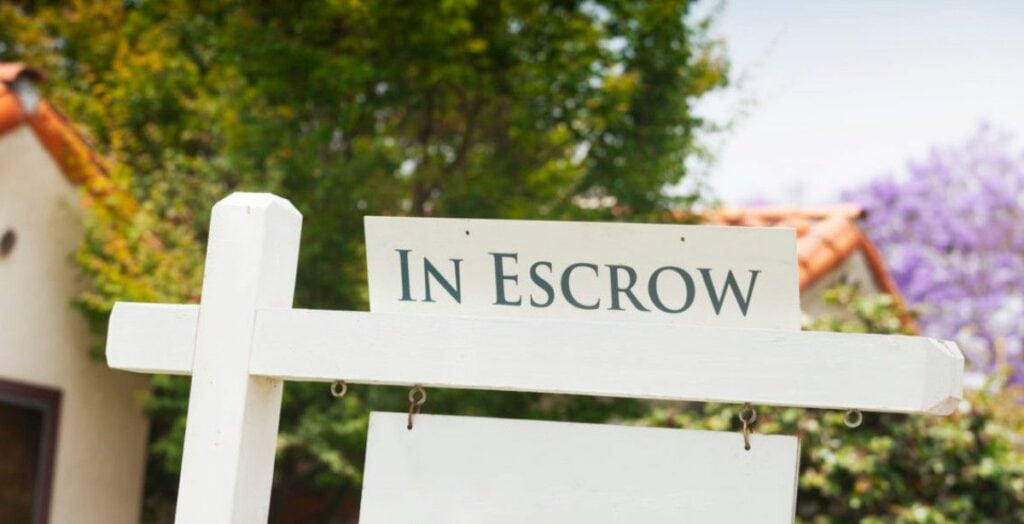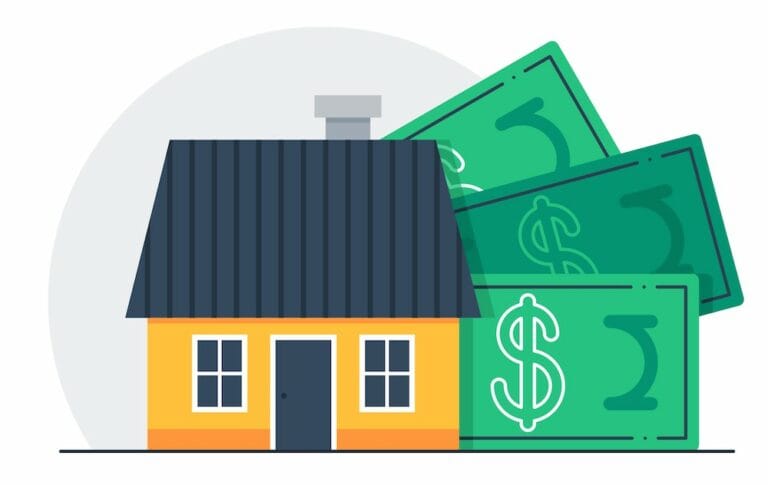What is Escrow | Why is Escrow Needed? | When Does Escrow Start? | How Long Does Escrow Take? | Escrow Timeline | If Escrow Doesn’t Close on Time | Speeding Up the Escrow Process | FAQs
|
🕰️ How long does escrow take? 🕰️
The average escrow process can take between 30-60 days. Regardless of the type of mortgage – whether FHA, conventional, VA, or other – the process will likely fall within this timeframe.
|
As a buyer or seller, you’re probably eager to know how long it’ll take for your home to officially change hands. One major factor determining this timeline is escrow.
The escrow process begins when a seller accepts an offer and an escrow account is opened, and ends when the sale of a house is complete and the buyer takes possession at closing. The coordination of all the moving pieces of the process can make or break your closing and moving timeline.
If everything goes smoothly, cash buyers can close in as little as seven days. But, it typically takes longer, particularly if you have to apply for a loan. So make sure you have realistic expectations.
Escrow is a complicated process, full of legal jargon and documents. An experienced real estate agent can clarify the process along the way, bringing you confidence through one of the biggest financial decisions of your life.
If you’re weighing your options for buying or selling a house, our friends at Clever can help! Clever’s licensed concierge team is available to answer your real estate questions, or help you find the right agent for your needs.
🗓️ Get personalized agent matches sent straight to your inbox!
What is Escrow?
Put simply, escrow is a financial holding account. A third-party provider, like a law firm, title company or escrow company, holds and keeps track of funds between a buyer and seller when negotiating a real estate deal, including things like the earnest money deposit and other fees that are part of the transaction.
Escrow can also refer to the process that begins when a buyer makes an offer on a house and ends on closing day (this coincides with when the escrow account opens and closes).
Escrow is a notoriously confusing concept, especially for first-time buyers. Fortunately, your real estate agent will help you navigate the process from beginning to end.
Why Do Buyers and Sellers Need Escrow?
When a home sale transaction occurs, buyers deposit money into an escrow account. The money is kept safe, and sellers cannot access it until the home sale is final.
For example, suppose a family finds a lovely house for sale in an excellent school district and is eager to buy it. They contact the seller, who advises them to write a check for $25,000 as a good faith deposit to hold the home while they secure a loan. Rather than giving it directly to the seller – who could theoretically take the money and run – a third party manages the funds until the sale closes.
Escrow can hold more than a cash deposit. It can also house:
- Title insurance
- Mortgage origination fees
- Attorney fees
- Property taxes
- Homeowners premiums
Escrow protects buyers from fraudulent sellers stealing their money. It also protects sellers from fickle buyers who are not serious about buying the house.
When Does Escrow Start?
The escrow process starts when a seller accepts a buyer’s offer on a home. Buyers often include a promise of earnest money, also called a good faith deposit, with their offer. It shows they’re genuinely interested in following through with the purchase of the property.
Once a seller accepts the offer, the buyer’s deposit is transferred to an escrow account. The funds stay in escrow until closing, when the buyer assumes ownership and the funds can be disbursed.
How Long Does Escrow Take?
Typically, the escrow process takes 30-60 days, depending on how quickly all parties (seller, buyer, lender, real estate agents) respond and the timeline for home inspections and appraisals.
Several other factors also influence the escrow timeline:
- Time between the offer and acceptance
- Lender’s preapproval process for a mortgage
- Scheduling of services like appraisal and inspection
- Timely completion of documents
- Completing mortgage underwriting
- Unexpected events like family emergencies or natural disasters
- Market conditions
For example, if you’re buying a house and are waiting on escrow to close in California, disclosures and inspections could take two or three weeks by themselves.
An experienced real estate agent can stay on top of the escrow process and keep things moving to arrive at a faster closing date.
👋 Need a great agent?
Escrow Process Timeline
1. Negotiate an Offer Pre-Escrow (1-3 days)
Before escrow begins, the seller and buyer negotiate and come to an agreement on the home’s purchase price. They’ll also establish any contingencies. Next, they start working towards closing on the sale.
2. Set Up and Fund Initial Escrow (5-7 days)
The real estate agent takes the earnest money and deposits it into an escrow account. The escrow account is set up and managed by a third-party provider, like a law firm, title company or escrow company. There’s typically a 1% to 2% fee to the escrow company.
3. Schedule Home Appraisal and Inspections (8-21 days)
Before buying the home, the buyer and their lender hire an inspection and appraisal to ensure it is in good condition and worth at least as much as the requested loan amount.
The lender usually schedules the home appraisal, and the buyer arranges inspections. Inspections could include home safety (foundation, roof and systems), pests (termites) and environmental (radon, asbestos, lead and mold).
The seller makes the home available to the buyer and maintains utility services so their functioning can be tested. The buyer typically receives disclosures about the property during this step, such as past natural disaster damage, environmental hazards, and other issues.
4. Get Loan Approval (14-28 days)
The buyer must complete a mortgage application before moving forward with the transaction. The lender will rely on the home appraisal and the buyer’s eligibility criteria to approve or deny the loan.
If the buyer cannot secure a loan, the process ends here. Otherwise, the parties move one step closer to closing escrow.
5. Complete Lender Funding (29-43 days)
The lender funding process allows time for the buyer to secure homeowners insurance. It also includes a title search to make sure the seller has a free and clear title to transfer to the buyer.
Then, the lender sends the final loan documents to the escrow agent (or attorney) to begin the final closing process.
6. Final Walk-Through andEscrow Funding (5 days)
The last few days before closing are crucial. The buyer walks through the property to make sure the condition is the same as it was when they made the offer. If the buyer requested repairs, they’ll make sure the seller completed them, too.
Once everything looks good, the buyer and seller sign a Verification of Property form to prove that the buyer had an opportunity to do a final walk-through of the property and was satisfied with its condition. The buyer then makes the final payments to escrow to cover the down payment, closing costs, and other fees.
7. Escrow Closes (1 day)
Finally, it’s closing day! The buyer and seller will sign many, many documents to finalize the sale of the property. The escrow agent disburses the funds after the deed is recorded, and escrow closes.
What Happens if Escrow Doesn’t Close on Time?
If escrow doesn’t close as expected, you may have to wait it out. Home buyers can experience escrow delays due to:
- Appraisal. If the appraiser can’t fit you in right away, it can delay your closing. You may also have a delay if the appraisal statement is lower than expected.
- Contingencies. Buyers or sellers that add contingencies to the purchase agreement can create significant delays, such as a buyer’s offer contingent upon selling their previous home.
- Buyer financing. Getting a loan can take longer if the buyer’s creditworthiness, income, or current assets present obstacles. Buyers that change lenders mid-transaction can face significant delays.
- Slow repairs. Hiring and getting a contractor on-site to perform repairs can also back up the process if they are heavily booked, do poor quality work that must be redone, or don’t finish the work on time.
- Title issues. Occasionally, there is a delay with the title, and buyers don’t have many options in that case. Buyers and sellers must wait out the resolution process if a title has discrepancies about surveying, liens, or something else.
- Slow escrow. If your escrow company conducts business slowly, you may be tapping your foot, waiting to move forward.
How to Speed Up Escrow
Buyers may not have much control over the escrow timeline, but there are things you can do to speed up the process.
- Get preapproved for a loan. Preapproval gives you a better idea of how much house you can afford and gives you a higher probability of being fully approved for a loan when the time comes.
- Schedule the inspection immediately. As one of the most common delay sources, inspection companies can be busy and take a while before they can see your home.
- Have a backup plan in case the house receives a low appraisal. Either prepare a secondary offer, add contingencies, or be prepared to walk away from the sale and start fresh with a new home.
- Get a real estate agent in your corner. Real estate agents have the experience and expertise to help you avoid delays and pitfalls, expediting the escrow process.
Don’t have an agent yet? Our friends at Clever Real Estate can connect you with local realtors from some of the nation’s top brokerages to help you through escrow, from offer to close. In 41 states and Washington D.C., you’ll even get cash back — just for finding your agent through Clever!
The best way to find an agent AND get cash back!
Our friends at Clever can match you with pre-vetted agents who can help you land your dream home. And in 41 states and Washington D.C., you'll even get cash back at closing!
For a home sale, that puts money back in your pocket — just for finding your agent through Clever.
Recommended Reading
FAQs About How Long Escrow Takes
When does escrow start?
The escrow process starts when a seller accepts a buyer’s offer on their home. Buyers often include earnest money, also called a good faith deposit, with their offer. The deposit is then transferred to an escrow account, signaling the start of escrow. Learn more about when escrow starts.
How long after funding does escrow close?
The time between funding approval and closing is typically about five days. The escrow process closes when the sale of the property is finalized at closing. The escrow agent disburses the funds after the deed is recorded. Learn more about when escrow closes.
How long is the escrow timeline?
Typically, escrow can take between 30 and 60 days, depending on how quickly all parties (seller, buyer, lender, real estate agents) respond and the timeline for home inspections and appraisals. Learn more about the escrow process timeline.




